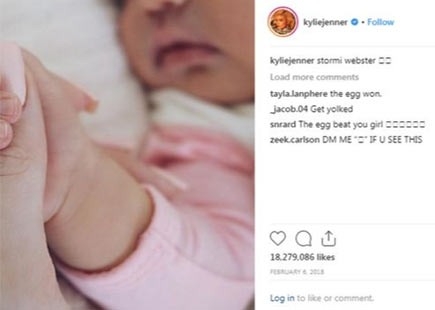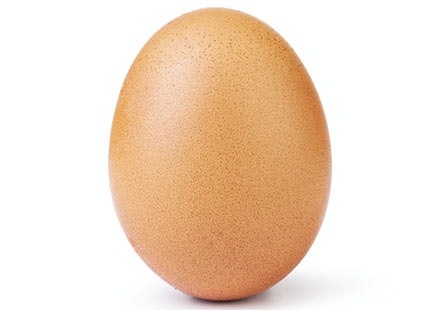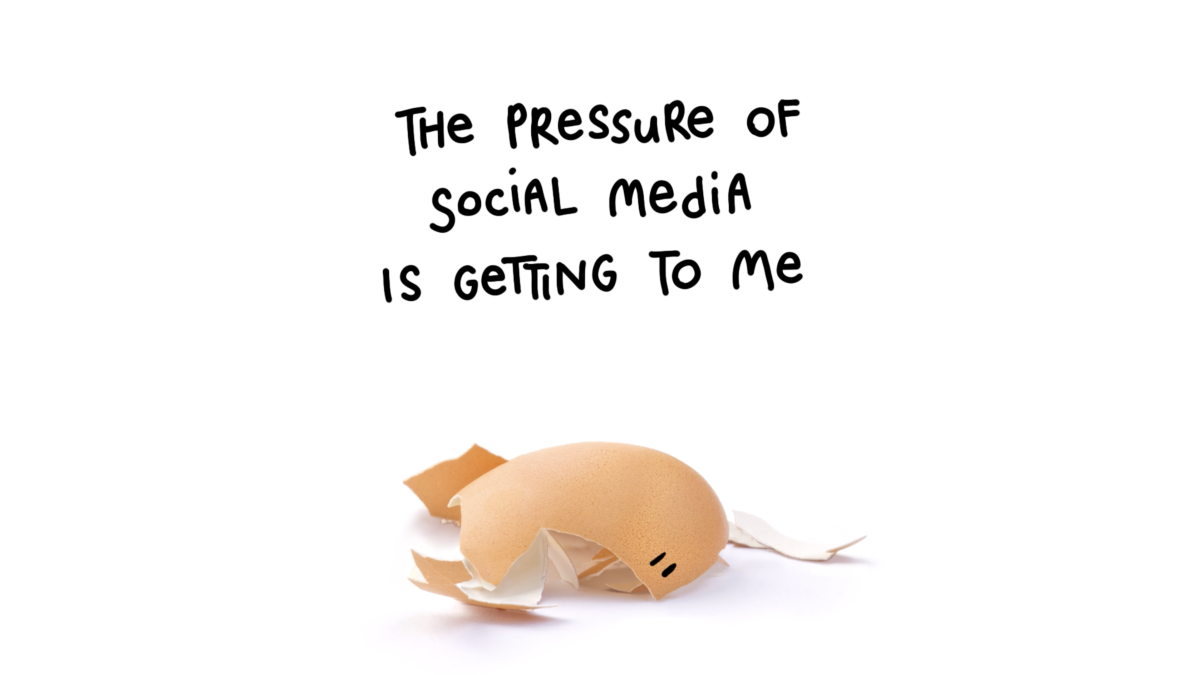How Instagram's world record egg became a mental health champion

The Instagram egg didn't just break the internet. It cracked.
Back in 2019, Chris Godfrey posted a stock image of an egg that became a global phenomenon with 54.8 million likes.
This made it the most-liked Instagram post (famously beating the previous record-holder Kylie Jenner for the picture of her daughter) and the most liked online post on any website in history.
Along with teammates Alissa Khan-Whelan and CJ Brown, he then posted a second picture of an egg with a small crack, a third with two bigger cracks, and a fourth with even larger cracks. Then the egg was then posted with stitching like that of a football referencing the Super Bowl. It was then revealed that it was used by subscription video on demand service Hulu to promote an animation about a mental health campaign.
A caption from the clip read, "Recently I've started to crack, the pressure of social media is getting to me. If you're struggling too, talk to someone." The video was later posted on @world_record_egg Instagram account which had received over 33 million views by May 2019. As of December 2020, it had received over 43 million views.
Creative Moment spoke to Chris about the story behind the egg, how it became a meme with purpose and where it will go next.
Creative Moment: With over 50 million likes, how does it feel to be the owner of this incredible record?
Chris Godfrey: It’s quite a surreal feeling knowing that 1 in every 147 people on earth has liked our little egg.
I say, “our”, but really, I’ve never felt the world record was ours alone. We may be its guardians, but the record belongs to the internet. Otherwise it would still just be three friends sitting in a flat staring at an image of an egg with a few likes.
Headlines like ‘World Record Egg Cracks the Super Bowl to Reveal Mental Health PSA’ really blew us away.
CM: What was your original intention?
CG: I’d be lying if I said I had it all been planned out from the start. It was a Friday evening and knowing full well I didn’t have the willpower to be in the pub while doing dry Jan, I went home and got lost on the internet. Reading an article about the most-liked Instagram posts of 2018 I noticed everyone featured was young, rich, filtered and famous.
If that was the dress code for entry I was shit out of luck, but it got me thinking could anyone (or thing) outside of that revered social clique ever compete?
I took it as a personal challenge and gave myself the rest of the year to beat Kylie Jenner’s 18.3 million. With a new account created, a stock image of an egg was uploaded - I had considered a sausage roll, a chicken nugget but nothing was as basic and universal as an egg.
Kylie being dethroned by egg? We thought it would be hilarious.
Fortunately we weren’t the only ones. Nine days and 55 million likes later records were smashed.


CM: You famously 'broke the internet'. What do you think this exposed in terms of the influence of social platforms?
CG: The success of the egg exposed both the true value of a like and the importance we tend to put on vanity metrics. If an egg can get 55 million likes, what does a like mean to us now?
In today's world our work and image is voted for by other people, and inevitably that impacts on our self worth and mental health.
The message of an egg beating Kylie Jenner to the top, was one of an underdog. Empowering people to recognise they don’t need to be rich or famous to be “liked”.
CM: Tell us how you went about using a prime time Super Bowl ad to show the egg with cracks, highlighting the important issue of mental health.
CG: Following the success of the record, we launched the Cracking Campaign.
It was born out of our experience. We felt like countless other viral and reality show stars thrust into the limelight - that the world was watching and waiting on our next move.
It was a lot of pressure. What does an egg do when it feels pressure? It cracks. That was it, that was our idea!
A second post was uploaded, the same image but now with a tiny crack in the top corner. After two weeks of constant interaction and community management, we went silent, leaving the caption blank.
The internet lost it. Within a few hours it was an even bigger story than before.
The world wanted to know what was coming out of this thing? Would it be a chick, Danny Devito, Tom Brady or had this whole thing been a Kardashian marketing ploy with Kris Jenner waiting to pop out.
We’d already spoken with Nick Tran - then at Hulu - and really got on, so Alissa called him and shared our idea. He loved it and after a nervous day or two waiting, we got the green light for the Super Bowl.
My first reaction was fuck yeah! then just fuck! We had 4 days to write, create and send for approval.
With the help of the amazing team at Animade we were able to bring Eugene to life just in time, getting approval hours before it went live. When it aired we directed people to Talking Egg - the first global online mental health hub, a platform created by us and contributed to by the Egg Gang community by sending in their local mental health support service to be added to the list.

CM: What will you do with it next?
CG: In the two years since we've collaborated with DJ Khaled, The Jonas Brothers, Happy Egg Co, some of our favourite charities and launched Happy Yolk, our communications agency specialising in social, PR and design, continuing many of the relationships we established through the egg.
For Eugene, himself, we’re creating an animation show that aims to shine a light on mental health but with humour at the heart of it. Since mental health issues are steadily on the rise among young people, we want this show to put a light hearted spring in their step to tackle some of life’s toughest issues.
The show will address real life themes such as gender, body confidence, race, disabilities, peer pressure, family dynamics, and bereavement. All through a gang of eggs whose biggest fear is cracking, with Eugene as the lead.
The development of the series is being funded by the British Film Institute, which is hugely exciting.
It feels more important than ever that we tackle these topics and have a more open conversation around them.
If you enjoyed this article, you can subscribe for free to our weekly email alert and receive a regular curation of the best creative campaigns by creatives themselves.
Published on:


